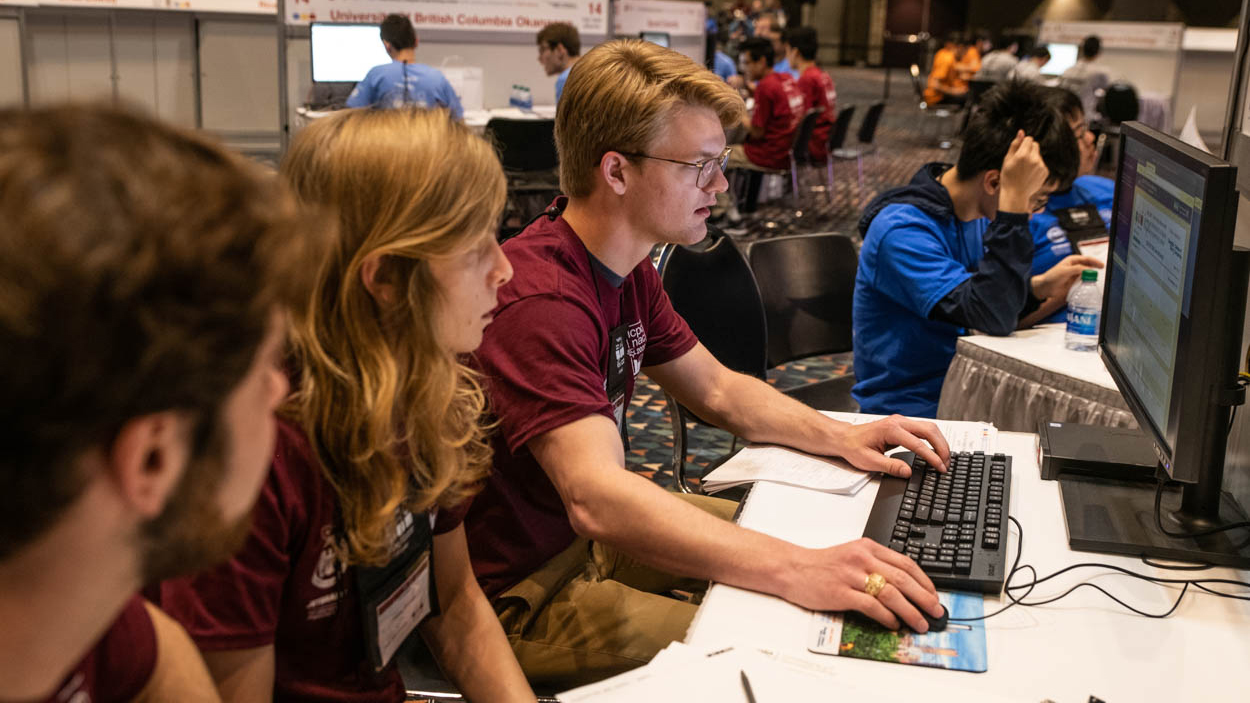
Twenty-seven students from Texas A&M University participated in the International Collegiate Programming Contest (ICPC) South Central USA regional competition that was held March 6.
The South Central USA region consists of Texas, Oklahoma and Louisiana. Typically held in the fall, the regional competition was delayed due to the global pandemic and held virtually. This year, 55 teams participated in the event.
Texas A&M was represented by nine teams, three of which finished second, fourth and seventh, with the others placing in the top half of the region overall. Dr. John Keyser, professor in the Department of Computer Science and Engineering, serves as a coach for the students. A team from The University of Texas at Dallas placed first overall.
The Texas A&M teams that placed second and fourth qualified to advance to the divisional championship, which takes place on April 22, with the hopes of earning a spot in the North America championship. From there, if they qualify, they will go on to compete in the world finals.
The origins of the ICPC can be traced back to a small competition that was held at Texas A&M in 1970 by members of the Upsilon Phi Epsilon Computer Science Honor Society. Now spanning more than 100 countries, it is the largest and most prestigious international college-level programming competition in the world.
During the competition, the students are given real-world problem statements and have to figure out what algorithms are needed to solve them and implement a program to do so. The teams are then ranked based on the number of problems they solve within a five-hour period, and then how long it takes them to solve each problem. Despite how challenging these competitions are, they are extremely beneficial to the students that participate.
“I think competitions like ICPC are a great opportunity to be able to test and improve one's problem-solving abilities in both a team setting and a time-constrained environment,” said sophomore computer science student Dhruv Patel. “Additionally, participating in the competition offers a way for contestants to learn new algorithms and problem-solving techniques that they may not otherwise have encountered, and can use these skills outside of competitions as well.”
To prepare for the competition, the students held practice sessions every week where they held their own contests and attempted to solve new problems in an environment similar to the actual competition. They also dedicated several hours of their time outside of these practices to keeping their algorithmic abilities sharp and learning about new techniques that could be used.
“My team is really excited and honored to be one of the two teams that will represent Texas A&M at the divisional round,” said Patel. “We know that we have a lot that we can improve and can only strive to get better with more time. Having been my first time competing in ICPC my experience has been great thus far and I want to continue to do well!”
To the view the final scoreboard, visit the South Central Regional Contest's website.